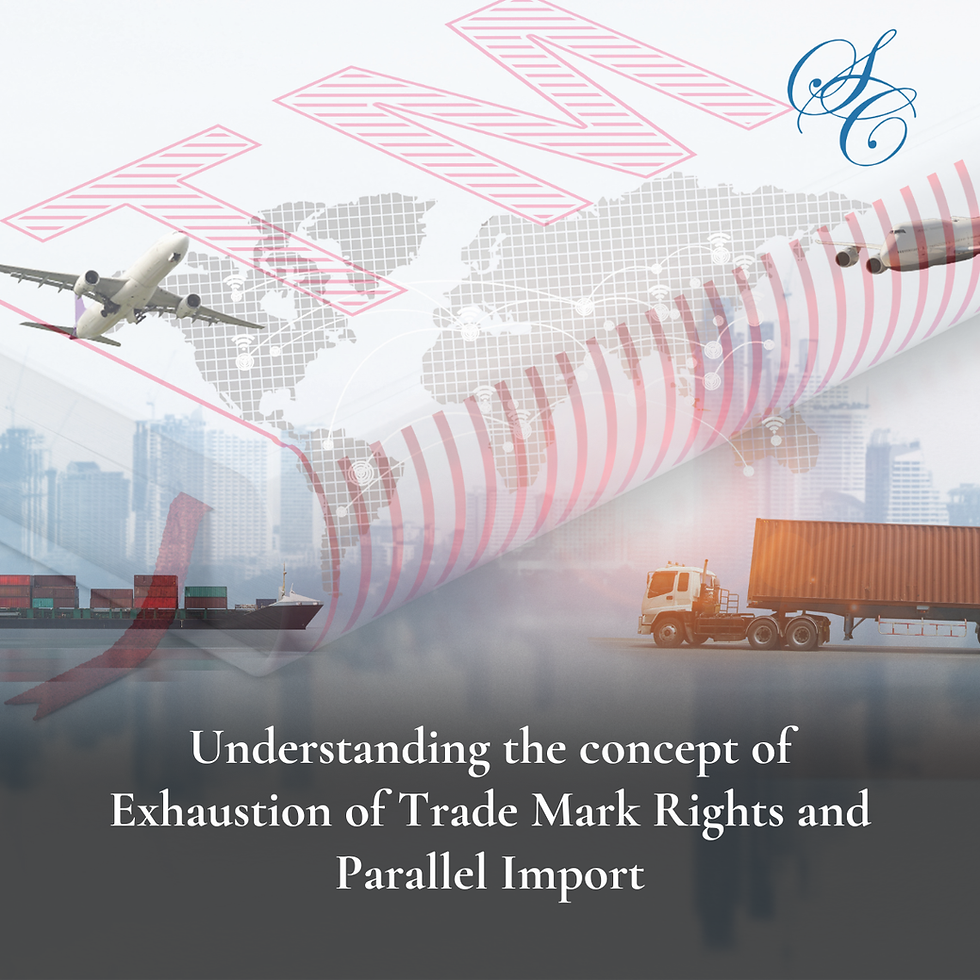Using Ex-Parte and Ad-Interim Injunctions to Enforce Trademark Rights in India
- Sarwajeet Singh
- Jun 30, 2016
- 3 min read
Despite gradual improvements over the years, the time frame from filing to decision in civil suits in India tends to be very long, only to get further elongated if the other side deploys delaying tactics, and significantly so if a plaintiff does not take appropriate counter-measures. Though recent amendments to procedural law promise to address the issue of delayed injunctions, only time will ascertain how these amendments take effect.
Sometimes courts can take upward of 1 year to grant interim injunctions. In trade mark and copyright cases, such a time frame hardly helps a plaintiff’s case. Thus, it is very important to devise an enforcement strategy that deploys civil litigation effectively. The ability of civil courts to grant special interim injunctions in the nascent stages of the suit, and even without hearing the opposite side, significantly enhance the feasibility of civil litigation as an enforcement strategy. These special interim injunctions, known as ex-parte and ad-interim injunctions, are discussed below.
What are Ex-Parte and Ad-Interim Injunctions, and Why Are They Useful
Procedural law governing civil suits in India allows courts to grant injunctions without hearing the other side – also known as ex-parte injunctions. If a plaintiff asks a court to grant an ex-parte injunction, a court will usually hear the plaintiff within 1-3 days from the date of filing of a suit accompanied by an application for grant of such an injunction. Ex-parte injunctions are usually worded, so that they operate only till the next date of hearing at which the defendant is given an opportunity to present its case.
Even if the court refuses to grant an ex-parte injunction, it is still possible to press for an ad-interim injunction. An ad-interim injunction is granted after hearing a defendant and operates only till the next date of hearing.
A significant advantage of obtaining an ad-interim injunction (either ex-parte or otherwise) is that it is generally extended to subsequent hearing dates, unless and until the other side challenges it and succeeds – which may not happen soon.
What factors affect the grant of Ex-Parte and Ad-Interim Injunctions
Delay of even a few days in filing a complaint since discovering an infringer may seriously affect the grant of an ex-parte injunction. On the other hand, for an ad-interim injunction, delay of a month to six weeks may not be fatal. Even if the delay has no bearing on the final outcome of the suit, it is a convenient means by which courts can deny ex-parte or ad-interim injunctions. In ex-parte cases, courts at times infer the possibility of delay if the defendant is highly invested in the trademark in question.
Another significant factor that is pivotal to the grant of an ex-parte decision is whether the mark is inherently distinctive or not. For instance, in a recent string of decisions, the Delhi High Court has made it clear that no ex-parte injunction is to be granted unless the mark is inherently distinctive.
Strategic Takeaways
Pressing for ex-parte and ad-interim injunctions could be incredibly important where an infringer is a competitor. Though ex-parte and ad-interim injunctions may pressure a defendant to opt for an early settlement, this may not always happen – particularly if the defendant is financially strong. Such injunctions may even trigger a defendnat to try his luck and file a cancellation action against your registered mark on which the suit is based. To sum, though ex-parte and ad-interim injunctions promise an early settlement in your favor, a prolonged legal battle in multiple forums is also possible.
Obtaining a fair legal opinion of whether your trademark is inherently distinctive under Indian law could give you a realistic idea as to whether you have any chance at all in obtaining an ex-parte injunction. If an ex-parte injunction is unlikely, it is still possible to press for an ad-interim injunction aggressively on each hearing date. Unlike ex-parte injunctions where even a delay of few days could be fatal, the chances of obtaining ad-interim injunctions may still be good even if there is a month’s delay in bringing a suit. Moreover, having evidence that the mark was used in bad faith (such as non-response to legal notices, being a former contractor/licensee/employee) would also assist in improving your chances of success in obtaining an ad-interim injunction.
The strategic benefits of obtaining ex-parte and ad-interim injunctions are best summarized by Sun Tzu – Attack him where he is unprepared, appear where you are not expected.




Comments